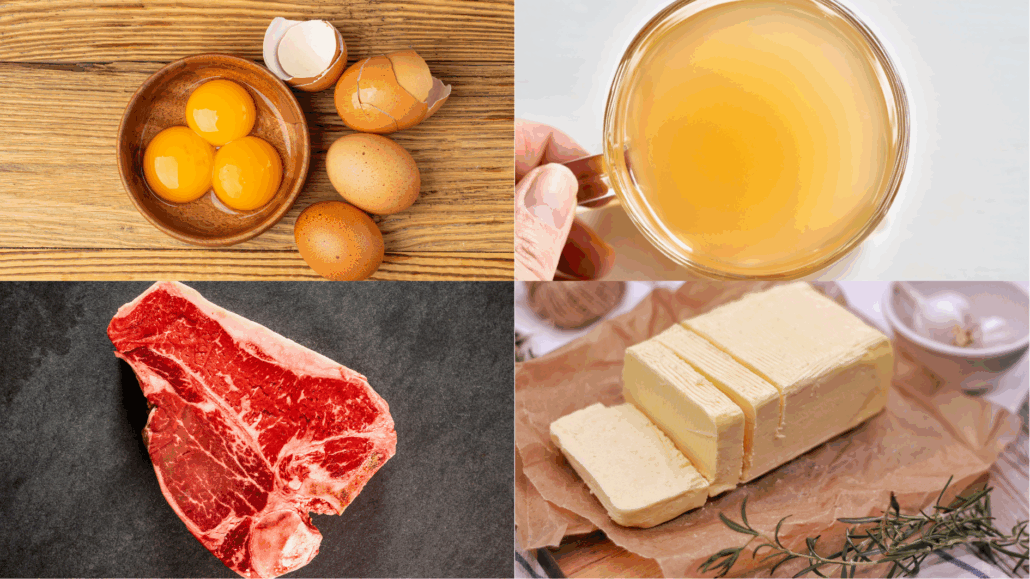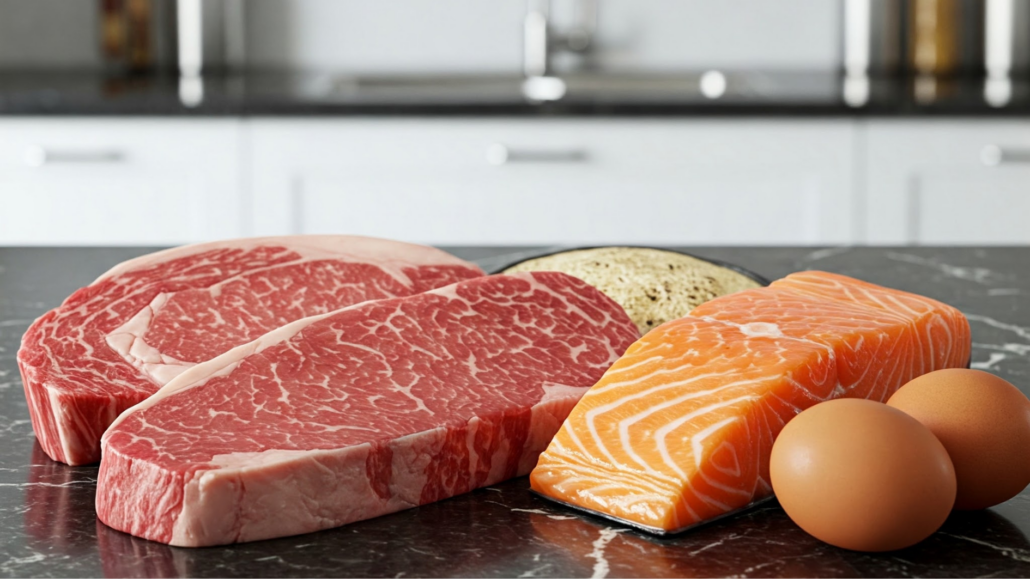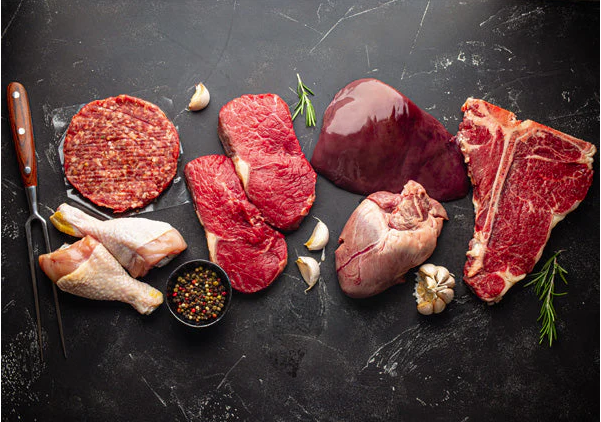We include products in articles we think are useful for our readers. If you buy products or services through links on our website, we may earn a small commission.
Vegan to Carnivore: Reasons and Testimonials

The journey from vegan to a carnivore may seem like an unlikely transition. Yet, as people seek to optimize health and well-being through their diets, many find themselves navigating a spectrum of choices in search of the diet that is most aligned with their values and health goals.
While many vegans are motivated by ethical and environmental considerations, it turns out that certain approaches to the carnivore diet may actually harm far fewer animals. When considering the nutritional differences, new research reveals the evolutionary underpinnings of a carnivorous diet while shining a light on the nutritional necessity of animal-based foods.
In this article, we’ll explore the motivations for transitioning from a vegan lifestyle to a carnivorous one, considering ethical considerations and the evolving understanding of nutritional science. We’ll also offer a roundup of testimonials from people who have successfully made the transition.
Table of Contents
Vegan vs Carnivore?
The vegan and carnivore diets seem like they couldn’t be further from one another.
The vegan diet eliminates all animal products.
The carnivore diet eliminates all plant foods, including veggies, legumes, nuts, grains, and fruit, and only allows the consumption of (unprocessed) animal products.
Yet the reasons why people choose either a vegan or carnivore diet can be strikingly similar.
For example, most vegans and carnivore dieters are seeking the most nutritionally beneficial way of eating. And while nearly all vegans are overtly focused on animal welfare, many carnivore dieters actively advance animal and environmental welfare by choosing to consume animal products grown with ethical and environmentally regenerative practices.
Why do People Transition from Vegan to Carnivore?
People transition from vegan to carnivore for numerous reasons, including
- nutritional deficits of a vegan diet
- the unmatched nutritional density of animal products
- detoxing from plant toxins and antinutrients
- healing digestive issues and intestinal permeability caused by plant toxins and excess fiber
- the recognition that growing plant foods harms and/or kills millions of animals, billions of insects
- growing plant foods requires the use of either toxic chemical fertilizers or fertilizers produced in conventional “factory” dairy farms
Let’s dive deeper into some of these key issues
Do Less Harm to Animals and the Environment
The Vegan Society describes veganism as “a way of living which seeks to exclude, as far as is possible and practicable, all forms of exploitation of, and cruelty to, animals for food, clothing or any other purpose.”
Unfortunately for vegans, the way most plant foods are grown and harvested harms and kills billions of animals each year.
The Toll of Plant-Based Agriculture on Animals
Birds, rodents, fish, reptiles, and insects are killed both intentionally through “pest control” measures and unintentionally by tilling and harvesting machinery, pesticides, and environmental degradation. Fertilizer and pesticide runoff are major threats to fish and marine life.
In the 2019 book On Eating Meat, former chef turned pig, beef, and dairy farmer points out that in Australia alone, 40,000 ducks are killed each year in the course of rice production, and one billion mice are killed to protect Australian wheat production.
Commenting on this phenomenon, Evans told ABC News, “So a duck dying to protect a rice paddy for me is not much different for a cow dying to produce a steak. They are both animal deaths that happen in the name of us being able to eat. So there is nothing that we can do that doesn’t have an impact on animals.”
A study published in 2018 attempting to estimate current animal deaths in plant food agriculture based on older studies found that potentially 7.3 billion animals are killed annually in the United States.
When it comes to insects, the numbers are even more alarming. In America alone, pesticides kill or harm an estimated 3.5 quadrillion insects, including beneficial pollinators.
Is Carnivorism more Vegan than Veganism?
The toll that plant-based agriculture takes on animals and insects has led many vegans to a carnivore diet based on meat from large pasture-raised herbivorous animals like beef, bison, elk, and lamb.
In terms of doing less harm, the math is pretty simple. On a carnivore diet, people consume around two pounds of fatty meat per day. This provides over 200 grams of fat and protein and around 3000 calories.
A single pasture-raised cow yields around 430 pounds of meat, or about 1.18 pounds per day, per year. So you’d need less than two cows to provide nearly all of your nutritional needs for an entire year. Add in some local pasture-raised eggs, and ripened cheese, and you’re still at only 2 deaths per year.
This view of eating large herbivores in order to “do less harm” was first espoused by Steven L. Davis in a 2003 paper published in the Journal of Agricultural and Environmental Ethics.
Davis found that if half of the useable land in the US was assigned to plant production, and the other half to raise pasture-raised cattle, far fewer animals would die to produce meat.
| Hectares under food production | Animal deaths per hectare | Total Animal Deaths |
| 60 million: Plant foods | 15 animals per hectare | .9 billion |
| 60 million: Pasture-raised cattle | 7.5 animals per hectare | .45 billion |
Not only would pastured animal production cost the lives of half as many animals and plant production, but the quantity and density of both macro and micronutrients provided by large herbivores are far superior to plant foods.
Beyond doing less harm, Davis’s pasture/ruminant model offers other advantages, including
- Providing and regenerating grassland habitat for numerous species of land animals, birds, and insects
- Ruminant animals thrive on forages–plants that humans cannot consume
- Pasture forage can take place (and even grown by cows through defecation) on rough land that cannot be used to produce crops for humans
Of course, this way of comparing vegan to carnivore requires carnivores to consume pastured animals and animal products. But there are other reasons beyond harm to animals that many people transition from vegan to carnivore, which we’ll turn to next.
Nutrient Density and Necissity
Animal-based foods provide nearly every macro and micronutrient you need to thrive, in near-perfect proportions, and in the most bioavailable (useable) formats.
In fact, there are numerous essential nutrients that are found only in meat, including
- D3
- B12
- Vitamin A (Retinol)
- Creatine
- Choline
- Carnitine
- Carnosine
- Heme iron
- Docosahexaenoic acid (DHA)
- Eicosapentaenoic Acid (EPA)
- Conjugated linoleic acid
- Vitamin K2
- Taurine
- Selenium
- Various amino acids such as tyrosine and tryptophan
| APPLE (100 g) | CARROTS (100 g) | RED MEAT (100 g) | BEEF LIVER (100 g) | |
| Calcium | 3.0 mg | 3.3 mg | 11.0 mg | 11.0 mg |
| Phosphorus | 6.0 mg | 31.0 mg | 140.0 mg | 476.0 mg |
| Magnesium | 4.8 mg | 6.2 mg | 15.0 mg | 18.0 mg |
| Potassium | 139.0 mg | 222.0 mg | 370.0 mg | 380.0 mg |
| Iron | .1 mg | .6 mg | 3.3 mg | 8.8 mg |
| Zinc | .05 mg | .3 mg | 4.4 mg | 4.0 mg |
| Copper | .04 mg | .08 mg | .18 mg | 12.0 mg |
| Vitamin A | None | None | 40 IU | 53,400 IU |
| Vitamin D | None | None | Trace | 19 IU |
| Vitamin E | .37 mg | .11 mg | 1.7 mg | .63 mg |
| Vitamin C | 7.0 mg | 6.0 mg | 16 mg | 27.0 mg |
| Thiamin | .03 mg | .05 mg | .05 mg | .26 mg |
| Riboflavin | .02 mg | .05 mg | .20 mg | 4.19 mg |
| Niacin | .10 mg | .60 mg | 4.0 mg | 16.5 mg |
| Pantothenic Acid | .11 mg | .19 mg | .42 mg | 8.8 mg |
| Vitamin B6 | .03 mg | .10 mg | .07 mg | .73 mg |
| Folate | 8.0 mcg | 24.0 mcg | 4.0 mcg | 145.0 mcg |
| Biotin | None | .42 mcg | 2.08 mcg | 96.0 mcg |
| Vitamin B12 | None | None | 1.84 mcg | 111.3 mcg |
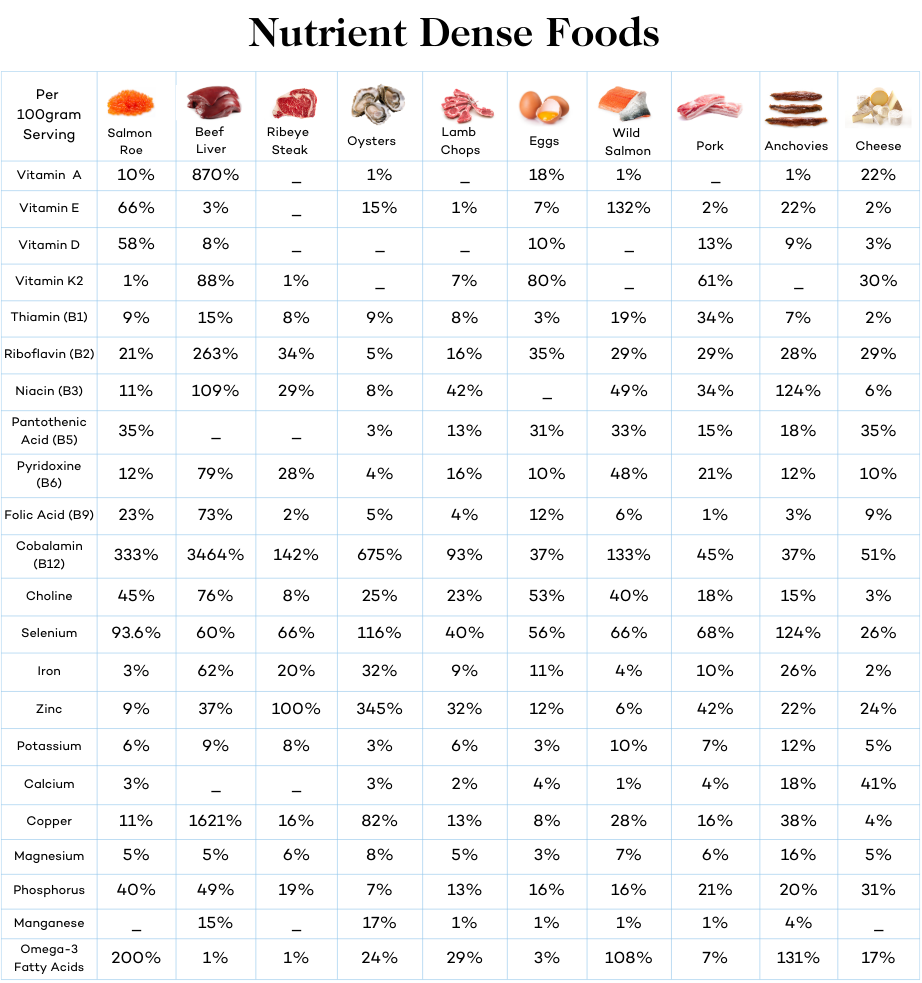
Plant Toxins
Nearly all plant foods contain natural pesticides and chemical compounds that help the plant survive while harming pests and predators, including us humans.
A vegan diet requires chronic exposure to high levels of potentially harmful plant toxins and antinutrients, including
These compounds can cause numerous allergies, autoimmune diseases, leaky gut, and chronic inflammation.
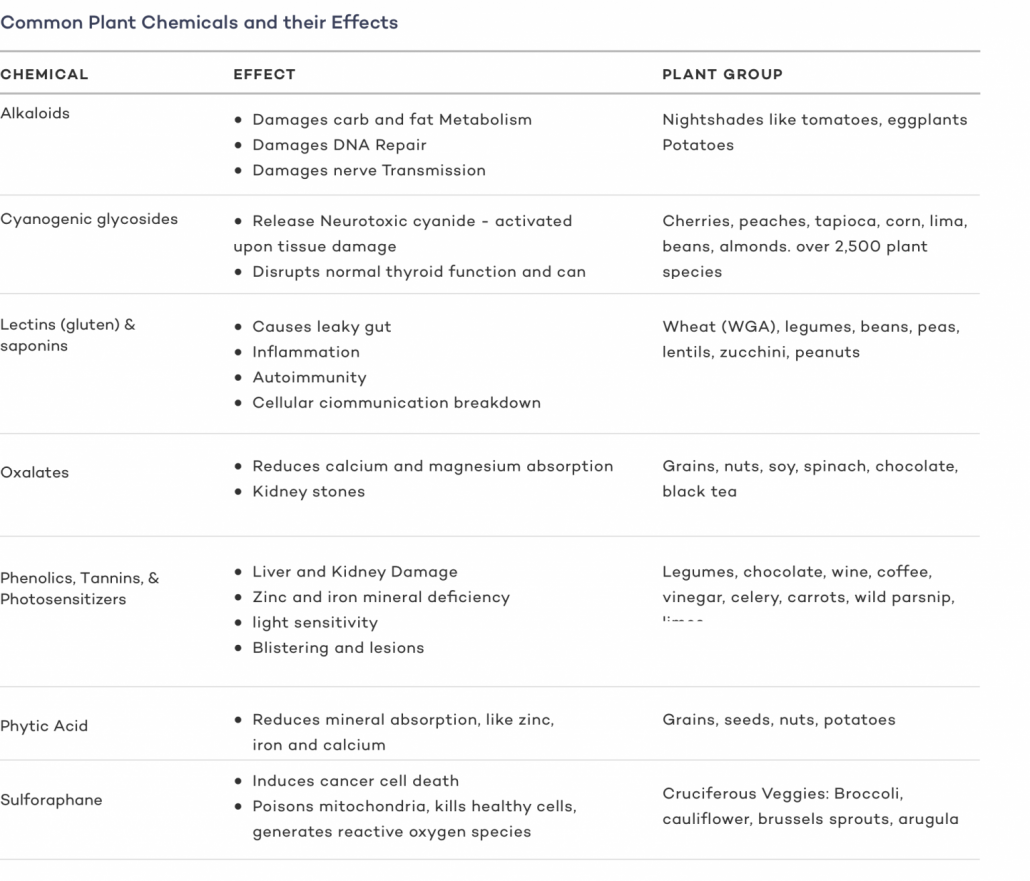
Examples of People Who Went From Vegan to Carnivore
Let’s move this discussion from quantitative and conceptual reasons for going from vegan to carnivore to personal experience.
Below, we’ve collected the stories of real people telling their stories of going vegan to carnivore.
Vegan to Carnivore: The Takeaway
People practice vegan and carnivore diets for various reasons ranging from animal welfare and environmental issues to improving mental health, reducing inflammation, and overcoming metabolic disorders.
By nearly every measure, the carnivore diet comes out on top. Yes, even regarding animal welfare, if you’re centering your carnivore diet around pasture-raised beef and ethically produced animal products.
Vegan diets require the eradication of billions of animals and quadrillions of insects annually to produce plant foods with far less nutritional value than animal products.
Animals have always been a staple in the human diet, and supporting pasture-raised regenerative meat production does significantly less harm than a mainstream vegan diet.












